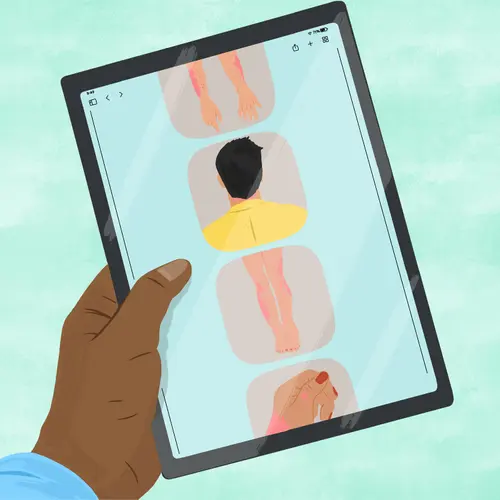Exercise is one of the most important things you can do for your health. Not only does it help you build and maintain muscle mass and control your weight, but it's also one of the most effective ways to reduce stress and anxiety, which can trigger eczema in some people. However, people with eczema face additional challenges when it comes to exercise.
Quick temperature changes, sweat, and abrasion from exercise clothes can all cause your eczema to flare up when you exercise. Swimming can help you avoid some of these challenges. It keeps you cooler than other types of exercise. You're also less likely to sweat excessively while you're swimming. But swimming with eczema comes with challenges of its own.
Chlorine and Eczema
Swimming pool water may be sanitized with a variety of chemicals. Many pools are treated with chlorine. Some people with eczema develop contact dermatitis, an allergic skin reaction, if they're exposed to chlorine. However, some people with eczema respond well to chlorine. Chlorine is bleach, and diluted bleach baths can be helpful for eczema.
Different sanitation methods with different and varying amounts of chemicals are used for different pools. Talk to the pool manager about what types of chemicals are used to treat the pool you intend to use. It's also a good idea to find out when chemicals are added to the pool so you can avoid swimming immediately afterward.
If you find that chlorine irritates your skin, you may be better off swimming in salt water. As with chlorine, salt water improves eczema for some people and makes it worse for others. It's worth experimenting to find what works best for you.
Avoiding Skin Irritation While Swimming
Regardless of where you swim, there are some precautions you should take to avoid triggering an eczema flare-up:
Don't forget sun protection. If you're swimming outside, make sure to use waterproof sunscreen. Many people with eczema use sunscreens containing titanium dioxide or zinc oxide. Before you go swimming outdoors, apply an emollient to your skin, then wait about 30 minutes before applying your sunscreen. This is so you won't dilute the sunscreen with the emollient, making it less effective.
Shower immediately afterward. Take a shower right after you swim and apply more moisturizer than usual. If the pool uses chlorinated pool water for its showers, take a shower at home as soon as possible to avoid excessive chlorine exposure.
Don't forget to hydrate. It's easy to forget that you lose fluids when you swim. Remember to drink water before, during, and after your swim to avoid dehydration.
Swimming offers a lot of benefits to people with eczema, so there's no need to miss out on the fun. It may require a few extra precautions, but you can get all of the benefits and enjoyment of swimming without causing an eczema flare-up.

